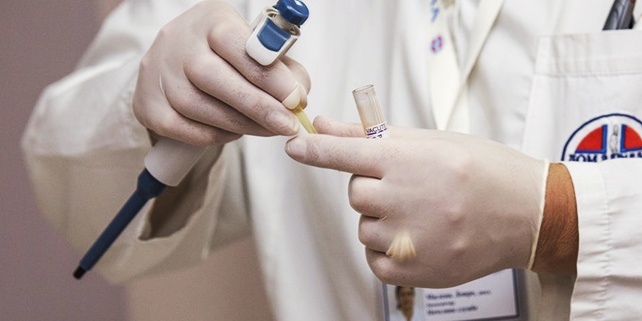On February 22, 2017, a unanimous U.S. Supreme Court decided in Life Technologies Corp. v. Promega Corp. (14-1538) that supplying a single component of a multicomponent invention for manufacture abroad is not a violation of the Patent Code.
The Patent Code, 35 U.S.C. § 271(f)(1), prohibits patent infringement for patents filed in the United States. Promega's holding eliminated the liability for damages if only one component was created overseas. The opinion, delivered by Justice Sotomayor with only Justice Roberts abstaining, revealed the Court sees a "substantial portion of the components of a patented invention" as at least two components. For one company to infringe upon the U.S. patent of another, the first company must supply more than one component built abroad.
Promega reversed the holding of the U.S. Court of Appeals for the Federal Circuit, which had held a "substantial portion" could be a single component if that component was sufficiently important. The ruling is a defeat for Promega. Its damages awards, which were in the millions, were invalidated. Promega, a Wisconsin-based company, is the exclusive licensee of the Tautz patent, or U.S. Patent No. RE 37,984. The Tautz patent is owned by Max-Planck-Gesellschaft zur Förderung der Wissenschaften E.V. This organization, also known as the Max Planck Society, is based in Munich.
The Tautz patent creates a toolkit for genetic testing. The toolkit is made up of five components and allows testing of at least one repeating sequence of DNA in a region on the DNA strand. The sequence is called a short tandem repeat (STR), and the strand in which it occurs is called an STR locus. The toolkit contains a mixture of primers, a polymerizing enzyme like Taq polymerase, nucleotides for forming replicated strands of DNA, a buffer solution for amplification and control DNA. To utilize the toolkit, a scientist takes a small sample of genetic material and runs it through a series of steps. The toolkit creates a DNA profile that can be used by a law enforcement agency or clinical or research institute.
Life Technologies ("LifeTech") was a California corporation that Thermo Fisher Scientific purchased in 2014. Promega sublicensed the patent to LifeTech, granting it a limited license to manufacture genetic testing kits for law enforcement agencies. LifeTech created every component of the kit except for the polymerase component in the United Kingdom. It created the polymerase component in the United States and shipped it to the U.K. LifeTech then assembled the kits in the U.K. and sold them worldwide. LifeTech sold the kits not only to law enforcement agencies, but also clinical and research markets. Promega claimed that this was in violation of the agreement between the parties.
Promega sued LifeTech for infringement in the U.S. District Court for the Western District of Wisconsin. The District Court held that LifeTech could not be liable for infringement because it only exported one component of the toolkit. The U.S. Court of Appeals for the Federal Circuit reversed. The U.S. Supreme Court then reversed again.
What this means for you as a biotech attorney is you should carefully examine agreements to determine whether a company has manufactured more than one component of a multicomponent invention abroad. Use the natural language of the agreement and the understandings between scientists in the field to determine whether an item qualifies as a component or subcomponent. Become familiar with how the components of a multicomponent invention fit together and are used. Prepare for argument by developing a way to explain your understanding to a judge. Also, develop your understanding of § 271(f)(2) of the Patent Code. This section limits infringement for a component "that is especially made or especially adapted for use in the invention and not a staple article or commodity of commerce suitable for substantial noninfringing use."



